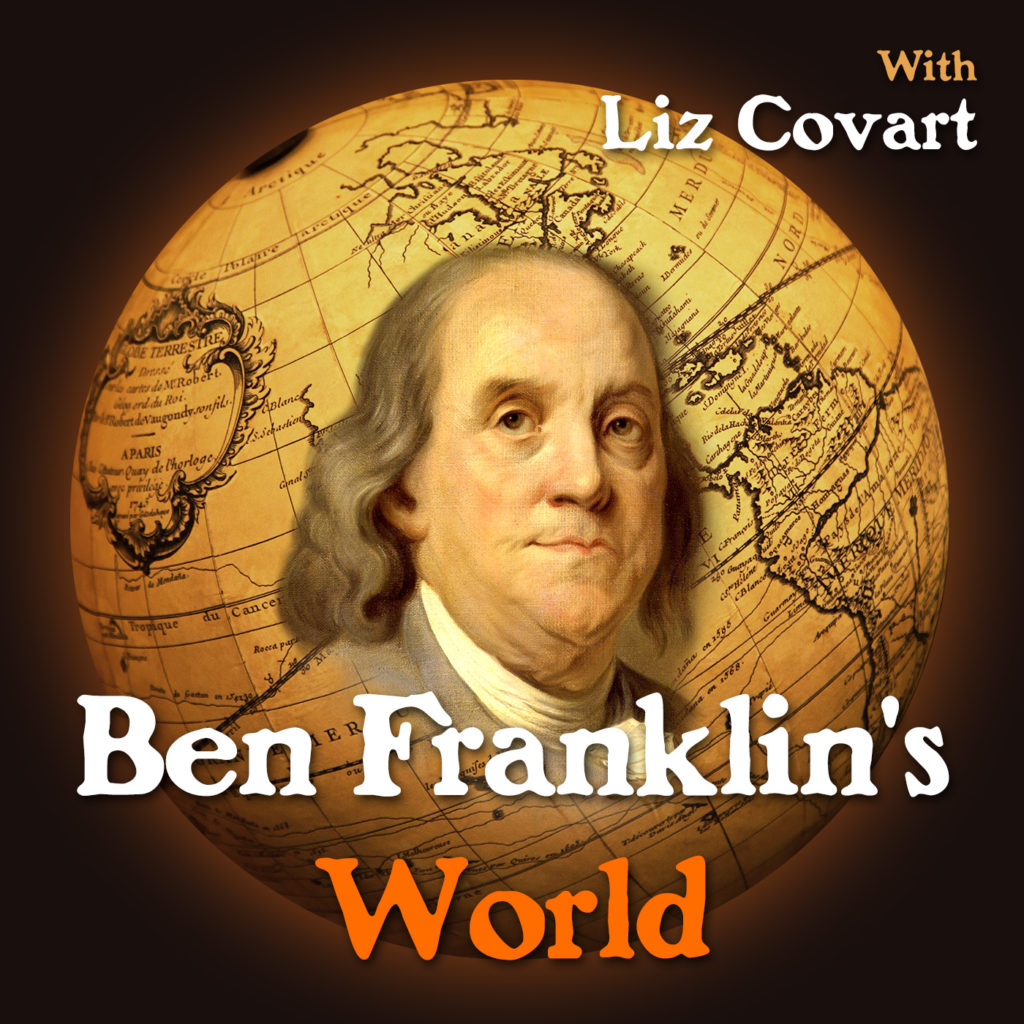Confession: I “play” seminar bingo. This is not an official game and no, I don’t print out cards and hand them out to attendees so they can play along. “Seminar Bingo” is really about me having a deep appreciation for my colleagues’ areas of expertise and for my evolution as a scholar of history.
New Job, New Opportunities at the Omohundro Institute
I’m excited to announce that I’ve joined the staff at the Omohundro Institute of Early American History and Culture as its new Digital Projects Editor. This is a really exciting opportunity because it means long-term support for Ben Franklin’s World and the Doing History series and a chance to continue working and collaborating with the OI’s great staff of talented historians and professionals.
Over the last two years, the team at the Omohundro Institute has helped develop Ben Franklin’s World into a serious and professional media outlet for scholarly history. Their knowledge has played a major role in growing Ben Franklin’s World into a podcast that receives over 160,000 downloads per month and has garnered more than 2 million downloads in less than 3 years. Plus, the Doing History series has evolved into a dynamic series that not only shows the world how historians work and why our work matters, but encourages us to experiment with adapting our traditional modes of historical interpretation and communication to new media. (Thus far these experiments have proven successful as episodes in the Doing History: To the Revolution! series are the most downloaded episodes in the entire BFWorld catalog.)
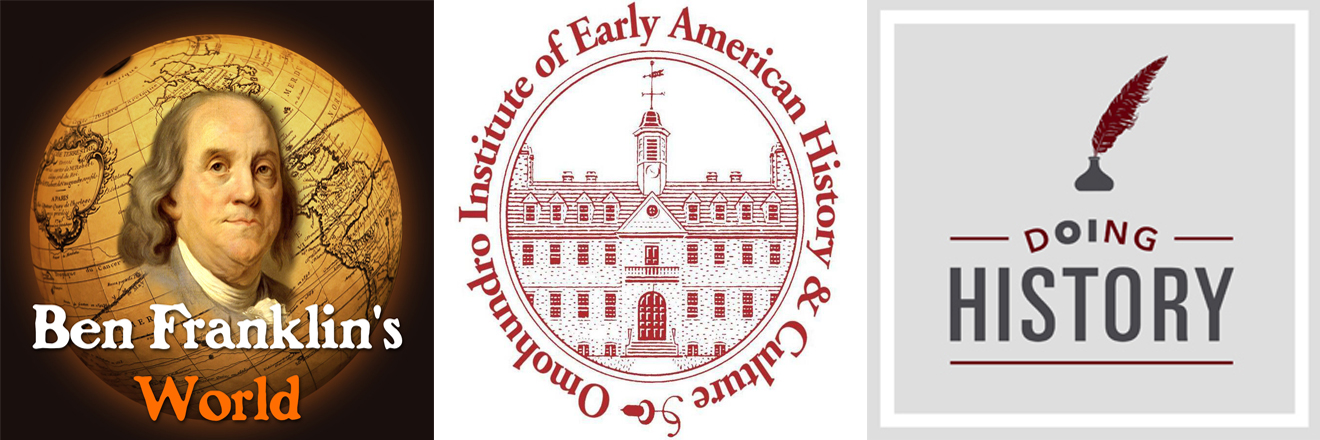
It’s also an exciting opportunity because the Omohundro Institute is the preeminent organization in the world for early American historical scholarship. They do so much to support the work that we historians do through their fellowship and publication programs, conferences, and digital history initiatives and by challenging themselves and others to produce the best scholarship in the field. And now, Ben Franklin’s World and I get to be a BIGGER part of that work.
Going forward, listeners can still expect great interviews with scholars who work on different aspects of early American History. Episodes will continue to post on Tuesdays, just as they have been for over two and a half years, and listeners can also expect more multi-part series with narrative-style episodes.
For nearly 75 years, the Omohundro Institute has been committed to producing the best scholarship in early American history and I’m really looking forward to meeting the challenge of producing episodes that meet their high standards as well as the high standards the Ben Franklin’s World and Doing History audiences have come to expect. I’m excited to contribute to the Omohundro Institute’s long tradition of excellence.
Rethinking French and Indian War Profits
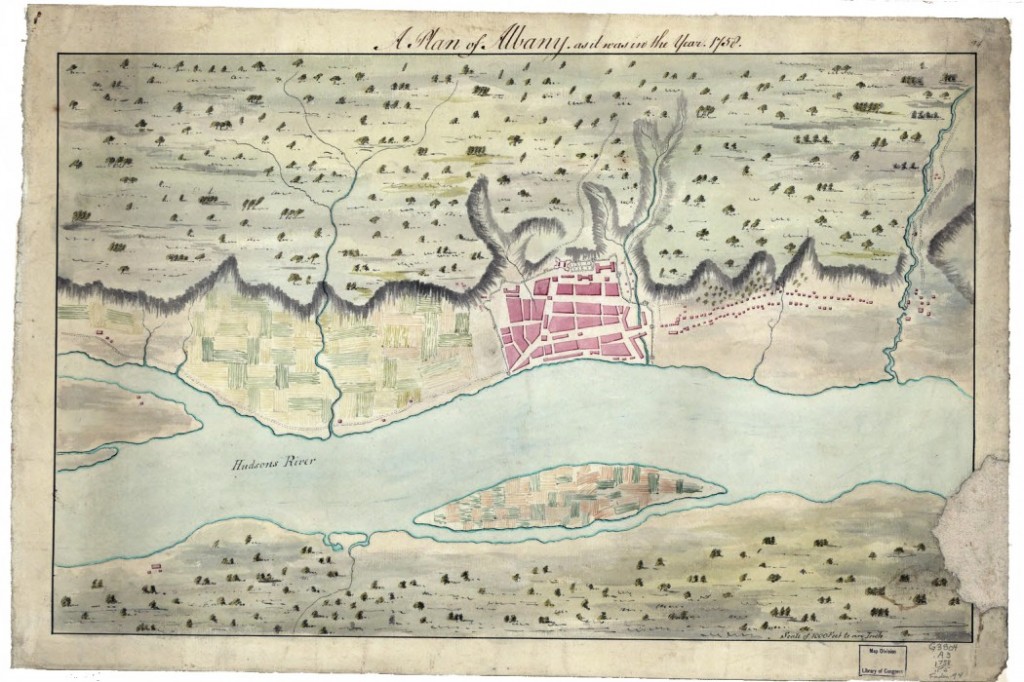 How much money did the merchants of Albany, New York realize from the French and Indian War?
In this post you will discover the exciting new information I found during a recent research trip to the American Antiquarian Society and why I am rethinking French and Indian War profits.
How much money did the merchants of Albany, New York realize from the French and Indian War?
In this post you will discover the exciting new information I found during a recent research trip to the American Antiquarian Society and why I am rethinking French and Indian War profits.
Charges of Great Profits
New England merchants and soldiers, New York City merchants, and traders from abroad complained that the merchants of Albany had discriminated against them during the French and Indian War (1754-1763).
They charged the Albanians with excessive taxation and with creating an unwelcome environment. They also claimed that the merchants of Albany had reaped great profits from the war.
Secondary sources about the war contextualize and moderate these assertions. The secondary sources claim that the profits of the war began in London and trickled down to merchants in major American seaports like Boston, Philadelphia, and New York City before they reached inland cities like Albany.
The Business of Military Supply
The War Department requisitioned supplies and contracted with large London mercantile firms to provide them. In turn, the London firms engaged large American houses, like those owned by the DeLanceys of New York City and the Franks of Philadelphia, to receive, acquire, and disperse those provisions.
Often provisions contracts between London merchants and large American firms charged American merchants with acquiring perishable foodstuffs closer to the front. Sometimes the American firms engaged trusted contacts in settlements closer to the front lines to fulfill their agreements for perishables and to deliver London-sent goods to locally stationed commissaries. More often, they sent factors (usually junior partners) inland to facilitate their military contracts.
 Available records make it impossible to quantify how much profit Albany merchants made during the French and Indian War.
Available records make it impossible to quantify how much profit Albany merchants made during the French and Indian War.
Scattered documents show goods that some Albany merchants imported during the war. They also provide a glimpse of how much money the British Army spent in Albany to hire laborers, build bateaus, and provide other services. For example, in 1758, John Bradstreet needed 1,500 bateaus for the campaign against Ticonderoga. He infused £19,251:15:1/2 into the Albany economy by purchasing lumber, naval stores, and labor to build them.
How Much Did Albany Merchants Profit from the War?
Although available documents make it impossible to quantify how much Albanian merchants profited from the war, I have never doubted that some of them must have made a fortune.
However, a recent research trip to the American Antiquarian Society has prompted me to rethink my assumption. My trip to the AAS put me into contact with the letterbooks of Cornelis Cuyler, one of Albany’s wealthiest merchants.
Cornelis Cuyler made his money the old-fashioned way: inheritance, marriage, and business.
The eldest surviving son of Johannes Cuyler and Elsie Ten Broeck, Cuyler inherited both the family fur trade business and the elite status that came with the “ancient” Albany-based names of Cuyler and Ten Broeck. He became a third-generation fur trader, a trade that required him to interact with Mohawk and other Haudenosaunee or Iroquois peoples and travel into “Indian Country.”
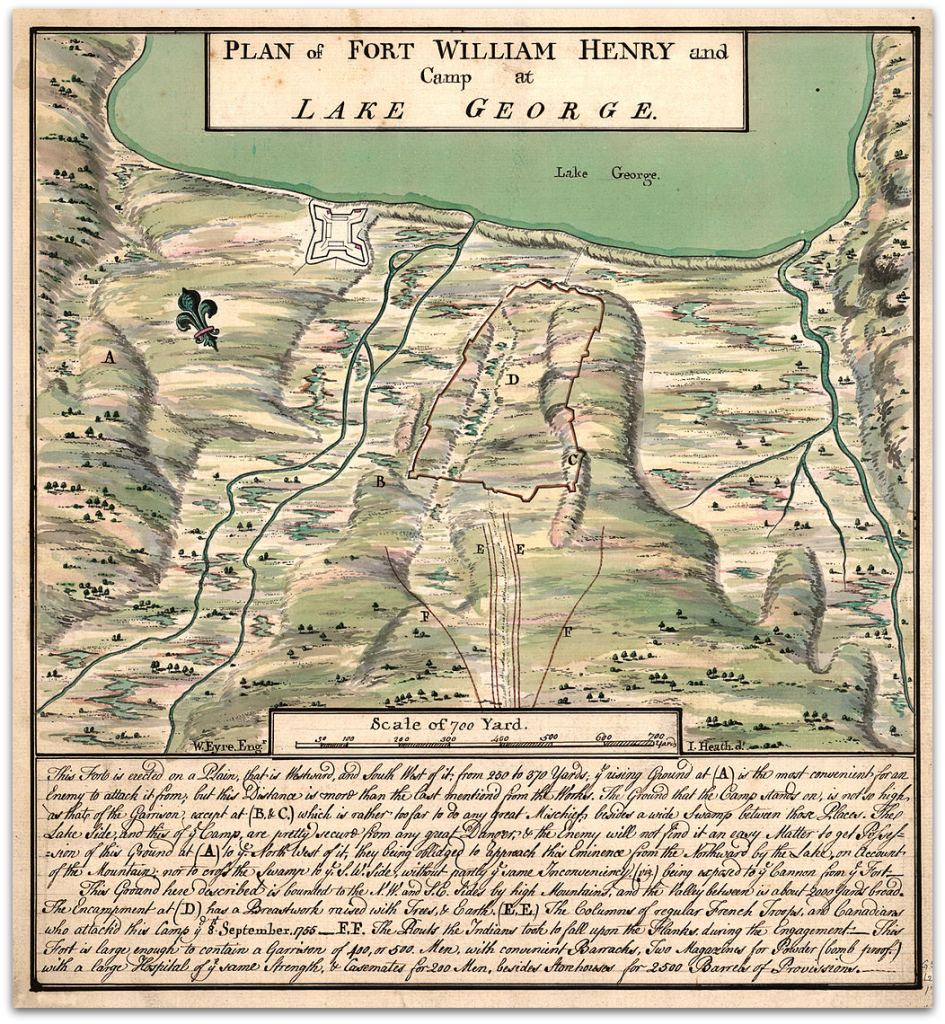 Cuyler’s efforts and keen sense of the trade enhanced the family business and wealth, as did his marriage to Catharina Schuyler, the youngest daughter of Albany Mayor Johannes Schuyler and Elsie Staats Wendell Schuyler. (Schuyler, Wendell, and Staats are also surnames that belonged to elite Albany families.)
Cuyler’s efforts and keen sense of the trade enhanced the family business and wealth, as did his marriage to Catharina Schuyler, the youngest daughter of Albany Mayor Johannes Schuyler and Elsie Staats Wendell Schuyler. (Schuyler, Wendell, and Staats are also surnames that belonged to elite Albany families.)
Cuyler’s letterbooks provide ample evidence that he understood the fur trade and how to leverage his familial connections to trade in Albany and abroad; Cuyler knew how to buy (or trade) for furs, where and when to sell those furs (London or Amsterdam), and how to use the proceeds to purchase English and Dutch manufactured goods, or goods from the West Indies, who to contact to smuggle the Dutch goods into New York, and how to sell them at a profit in Albany.
Cuyler's letterbooks reveal that knowledgeable and established Albany merchants profited early in the war, but not after 1756.
In 1755, Cuyler purchased £100* worth of textiles, clothing, and metal goods to sell to British soldiers, colonial militiamen, or for use in the fur trade. Additionally, Cuyler discussed how he provisioned sick and wounded soldiers at Lake George, advanced money to representatives from various colonial war committees, and rented property to an out-of-town commissary.
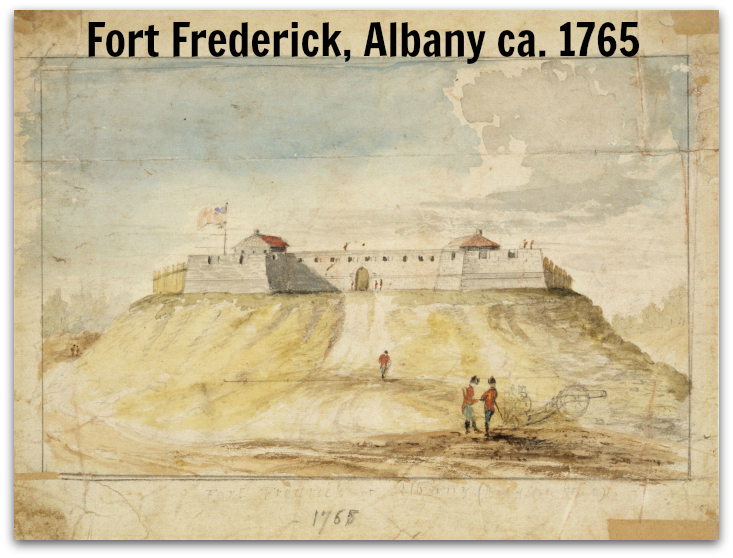 I have not been able to locate Cuyler’s account books, but his letters show someone with few complaints until April 1757.
I have not been able to locate Cuyler’s account books, but his letters show someone with few complaints until April 1757.
On April 7, 1757, Cuyler wrote to his relative and factor in Boston, Jacob Wendell, “Every thing here is @ Present Stagnated.”
On the same day, he wrote to his eldest son Philip in New York City, “Everything here is Stagnated with us” and that all of the profit went “to the People from New York” who “Supplys the Regulars Troups.” Cuyler commented on the unfairness of the situation: the merchants of New York City made all the money “& we have all the Burdon. I have at present 6 men & an Officer Billeted upon me that is Besides the Officers Servant.”
Cuyler’s letters reflect frustration at the military supply system. Unable to make money in military supply, Cuyler and his son invested in risky privateering ventures. Cuyler disliked the risk associated with privateering, but he invested in one or two ships anyway; he held a 1/16th share of one privateer.
Conclusions
Cornelis Cuyler’s letterbooks provide evidence that the people of Albany profited from the war, but not necessarily to the extent that the accounts of New England and foreign merchants have led us to believe.
Albany merchants who wanted to get rich from the war invested in risky schemes like privateering because partnerships with New York City firms did not always work out.
Cuyler’s letters indicate that more often than not New York City merchants like the DeLanceys removed Albany merchants from the profit chain. They hired New York City men or sent their sons to handle the supply contracts.
Cuyler’s letterbooks represent just one source. I plan to look for others, but few account and letterbooks from Albany during the French and Indian War period remain thanks to time and the New York Capitol fire of 1911.
Still, Cuyler’s letters provide insight into why the Albanians resorted to enforcing the ancient practice of “freedoms” (a license that all persons not born in Albany had to purchase in order to conduct trade in the city) and why they petitioned the New York Assembly, Governor, and Council to enact a law that would permit them to tax transient merchants. (The New York Assembly, Governor, and Council passed the requested law.)
Cuyler's letterbooks also suggest that the Albanians guarded their chances to profit because the trials and tribulations brought on by living in close proximity to British Regulars year-round caused many Albanians to feel entitled when it came to profiting from the war. Any profits the Albanians earned came at the price of hosting and housing the British Army.
*MeasuringWorth.com relates that £100 sterling in 1755 was worth approximately $13,500 in 2013.
Drawing of Fort Frederick courtesy of the Albany Institute of History & Art
Coming Attractions: Book, Podcast, Blog, and Travel
 Over the next few months, Uncommonplace Book will feature posts about exciting projects, content, and trips.
In this post you will find a sneak preview of upcoming blog posts as well as status updates on my 3 major projects.
Over the next few months, Uncommonplace Book will feature posts about exciting projects, content, and trips.
In this post you will find a sneak preview of upcoming blog posts as well as status updates on my 3 major projects.
Book
For the last two months I have felt frustrated with my first chapter. I am just about finished with my second draft and until last week I felt like I had all the pieces of the story, but no idea about how they fit together.
Last week I had a eureka moment: Why should I begin my narrative with Henry Hudson?
The realization that I do not have to cover Hudson's voyage or the early days of the New Netherland and West India Companies has led me to decide that I will begin my chapter with an example from 1657. I will use this example to explore the community of Beverwyck and expound upon its earlier history when necessary.
Will this tactic work? I have no idea.
I am giving myself until Friday, August 15, 2014 to finish this draft. I need to be quick with this third draft because I have to move onto my second chapter by August 15, if I plan to finish 4 chapters by early February. I have to have to submit a good draft of my fourth chapter to the Boston Early American History Seminar by February 3, 2015.
 Podcast
Podcast
I have scheduled the first interviews for “Ben Franklin’s World: A Podcast About Early American History.” I begin recording on August 13.
I have requested 7 or 8 interviews and the responses have been positive. I have booked 5 interviews, I am coordinating dates with 2 guests.
My goal is to record most, if not all episodes on Wednesdays. A set recording day will allow me to better organize my workflow.
I am trying to book 1 guest per week as I would like to turn my twice monthly podcast into a weekly show by the beginning of 2015.
I am still looking for guests and plan to send out more e-mails once I have set the interview dates for the 3 guests I am coordinating with.
If you have a project related to early American history that you would like to promote to a non-specialized audience please checkout my “Be a Guest" information page. I would also be grateful if you would send the URL (http://www.elizabethcovart.com/ben-franklins-world/guest/) for that page to any historian you know who may like to be a guest.
Blog
Here’s a sneak peak at posts that will appear over the next several weeks.
Conference Recaps
I attended both the Conference on New York State History and the Society for Historians of the Early American Republic conferences this summer.
You can expect to see 2 posts recapping panels from the CNYSH this month. The first post will summarize a panel about writing historical narratives. The second post will review a panel about life in the 17th-century Hudson River Valley.
I had the opportunity to attend several great panels at SHEAR. Topics include women and property, yellow fever, citizenship, relations between the United States and South America, early American contact with the Muslim world, and slavery and freedom. Recaps of these panels will appear over the next few months; they will be interspersed among other content.
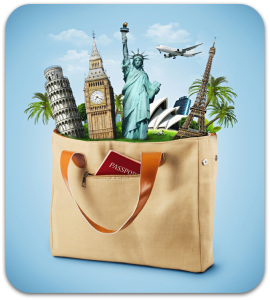 Travel Posts
Travel Posts
I have 2 trips coming up that will likely result in multiple posts.
On August 20, I leave for 8 days in Zürich, Switzerland. Tim has to travel there for work and asked if I would like to accompany him. (A rhetorical question.)
Tim and I plan to tour Lucerne during the weekend and I will spend the rest of the week in Zürich visiting museums and cultural sites in the morning and working on my book revisions in the afternoon.
On September 13, Tim and I will embark on a cruise from Boston to Canada. Tim calls this trip a vacation, but I refer to it as “French and Indian War Tour 2014.”
The ship will stop in Maine, Nova Scotia, Prince Edward Island, Québec City, and Montreal. I am wicked excited to travel down the St. Lawrence River and imagine how some of my Albanians used the river to conduct the fur trade.
I am also excited as our stops will include a look at the first Acadian settlement areas along the Bay of Fundy; Fortress Louisbourg, famous in New England for its capture by the Yankees in 1744; and Le Château Frontenac and the Plains of Abraham in Québec City. The British won a decisive battle over the French at the Plains of Abraham in 1759; the victory led to the British acquisition of Canada at the end of the French and Indian War in 1763.
Thursday Posts
In February, I mentioned that I would experiment with posting on Thursdays. Since that initial post I have posted nearly every Thursday.
Over the next several weeks you may see fewer Thursday posts.
I intend to remain as regular as possible with these posts, but I am working out a new workflow. I need to figure out how I can best add my podcast project to my present workflow that consists of book, blog, and freelance project time. As you know, some weeks present more challenges than others and I may have to give something up in order to meet my larger book, blog, and podcast goals.
You will not miss out on any content if I find that I need to reduce the frequency of my Thursday posts. I maintain a list of every post idea I have and I take notes at every conference, seminar, and event I attend. You will still receive great content here at Uncommonplace Book.
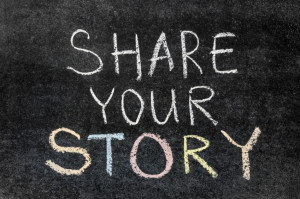 Share Your Story
Share Your Story
What projects, trips, new endeavors will you be working on over the upcoming weeks and months?
Ben Franklin's World Cover Art
Ben Franklin’s World: A Podcast About Early American History has an identity. Two weeks ago, I submitted a design brief to 99designs.com for podcast cover art.
Over the course of a week, graphic artists submitted designs they thought would fit the bill.
I received several worthy designs.
Unable to make up my mind, I polled the Uncommonplace Book Community subscribers, my Twitter followers, and Google+ friends. Over 35 people voted and this design emerged as the clear winner.
Thank you to all who voted. You submitted useful feedback and led me to choose a design that I am very happy with.
Work Still To Do
I still have a lot of work to accomplish before I launch Ben Franklin’s World. I would like to release the first 3-5 episodes in October 2014.
Before I launch, I must complete 6 tasks:
1. Finalize the intro, outro, and show segment music and voice overs 2. Set-up the webpages that will host the show on my website 3. Contact potential interviewees 4. Interview historians 5. Select an audio engineer 6. Send my first episodes to be edited by my engineer
Ways to Get Involved
Would you like to get involved with the Ben Franklin’s World Podcast?
You can get involved in 2 ways.
First, you can sign-up for the Ben Franklin's World mailing list.
The Ben Franklin's World mailing list will keep you up-to-date with the latest news about the podcast. You will also be the first to know when I set the official launch date.
You can sign up using the form at the bottom of this post.
Second, you can suggest a guest.
Do you know of an historian who has an interesting early American history project to share?
I am interpreting “Ben Franklin’s World” broadly. The show will cover the period of Ben Franklin’s life (1706-1790), but it will also discuss the history that produced the “world” Franklin lived in and the “world” Franklin helped to create.
I plan to interview historians who work on projects that relate to the development of early American history between the 17th and early 19th centuries. Therefore, historians who study European, Atlantic, African, and South American history may have projects that would be appropriate for the show.
If you would like to suggest a guest, please leave a comment or send me an e-mail.
(Yes, you may suggest yourself.)


